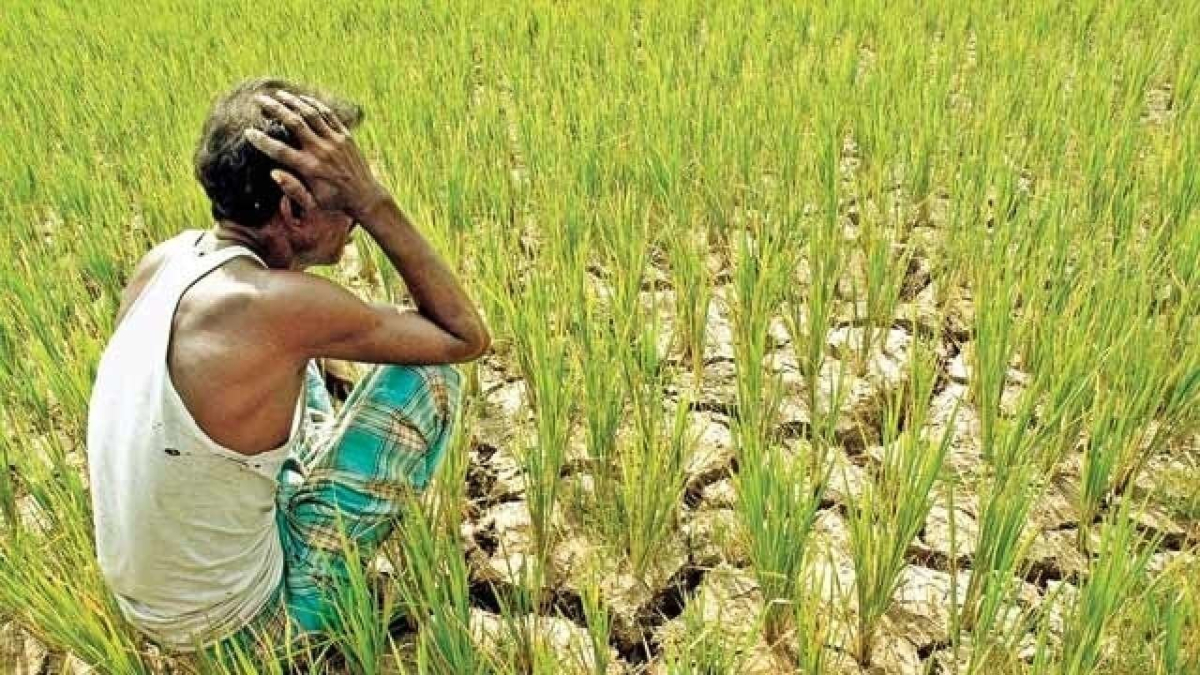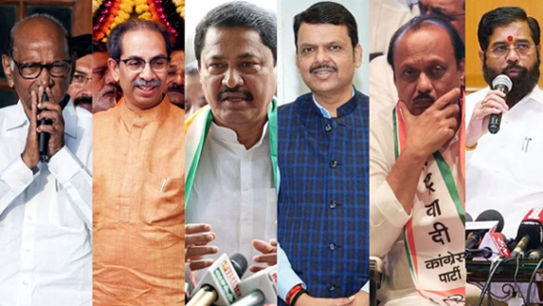
It is undisputed that APMC laws affect the state revenue. However, it is the conflicting interest of the state government which is preventing the farmers to reap actual profits from the product. The Central government in 2003 drafted a ‘Model APMC Market System Bill’. The purpose of the Bill was to help the state government liberalise their respective APMC laws and reduce the role of intermediaries. No state incorporated the reforms suggested therein. Therefore, the Central government was correct in bypassing the state government in bringing new legislation for agrarian reforms.
Introduction: The protest by the Indian farmers against the recent changes to the law related to farming is gradually intensifying. Through the recent ordinances, the Central Government aims to usher in a change of open market system in the agriculture sector. However, this change is being resisted by many farmer groups and unions who accuse the Central Government of indirectly removing the Minimum Support Price system and making the farmer vulnerable to corporate giants.
A cumulative reading of The Farmers Produce Trade and Commerce (Promotion and Facilitation) Ordinance, 2020; The Farmers (Empowerment and Protection) Agreement on Price Assurance and Farm Services Ordinance, 2020 and The Essential Commodities (Amendment) Ordinance, 2020. It is pointed out that these ordinances were in the current session were brought in as legislation and passed by both the houses of parliament. These legislation show a majority of concerns raised by the farmer groups and unions are based on false apprehensions misguidance by political parties. In this article, we try to bust the myths surrounding the recent changes to these Acts and address genuine issues in the implementations of the Acts.
The Problems with Agricultural Produce Market Committee System
A major criticism of the recent changes in the law related to farming is that it indirectly dismantles the Agriculture Market Committee System. However, the APMC system suffers from many infirmities and required reforms. The APMC system has created inconsistent growth amongst different stakeholders involved in the agrarian sector. While the agents/traders of APMC market earn astronomical profits, the farmers receive inadequate payments.
Under the APMC laws, farmers can only sell the agricultural produce at fixed “market areas”. The legal definition of the “market area” is very wide. It can range from a small area of land to an entire district. Under the APMC system, the farmers cannot sell their product outside the said “market area”. There is also a prohibition on selling product at APMC “market area” of a different district. The APMC system further requires the farmers and traders to pay a service fee to the APMC. APMC markets charge a service fee, even in those cases where no services are availed by the farmers. The restrictive nature of the APMC system suffers from serious problems. The system gives birth to cartels wherein the APMC agents conspire together to prevent high bids and get agricultural products at a very low rate. The profits made on selling the final product are shared between the APMC agents while they leave the farmers empty-handed. Another problem in the APMC system is restrictive trade barriers. For instance- The license fee charged by the APMC is very high, which makes the entry of a new distributor-agent very difficult. Further, the APMC demands a high rate of commission, fees etc on procurement of agricultural goods. Restrictive trade practices like these increase the ultimate price of the product.
The Ashok Dalwai Committee aimed at increasing the farmer’s income also recognized the involvement of numerous intermediaries in the sale of agricultural goods. According to the Dalwai Committee, majority farmers received only 15% of the ultimate price and the intermediaries earned the remaining profits. The Dalwai Committee also noted that India needed at least 3500 additional APMC market to make the sale of agricultural goods easier. Because of the lack of APMC market, the small farmers have to sell their product outside APMC areas to unlicensed agents who pay even less money than APMC agents for the agricultural product.
What has to be really pointed out is that the states where protests against the action of the central government are actually taking place there does not exist a very active APMC regime. Also it is imperative to mention that the existence of APMC regime is huge source of funding for the regional political players. It is the end of this source of funding which is actually leading to protests in the name of farmers rights.
Empowering the Indian Farmer Viz New Legal Regime
The objective behind the new legislation is to liberalise the agrarian economy. The Government aims to provide greater bargaining power to the farmers and minimize the role of the intermediaries by removing restrictive trade barriers.
Section 2(m) of The Farmers Produce Trade and Commerce (Promotion and Facilitation) Ordinance, 2020, stipulates an expansive definition for “trade area”. Under this section, farmers no longer have an obligation to sell their products only at the AMPC markets. Unlike the AMPC market system, farmers can now directly sell their product at any area or location, place of production, collection and aggregation including (a) farm gates; (b) factory premises; (c) warehouses; (d) silos; (e) cold storages; or (f) any other structures or places, from where the trade of farmers’ produce may be undertaken in the territory of India. Critics of the ordinance argue that even before the ordinance came into effect, majority Indian farmers sold their goods outside the AMPC markets. However, the same critics conveniently hide the fact that under the APMC market system products were sold outside the APMC market because of compulsion and at a very low price. Section 2(m) of the Act creates an additional place for trading agricultural products where the importance of the intermediary is negligible. Therefore, the farmers will directly earn profits as they won’t have to pay any additional commissions. As explained above, the entry of a new trader-distributor was very difficult because of cartels and high licensing fee. The FPTC Ordinance solves this problem too. According to Section 2(n) of the Ordinance, any trader with a pan card can now buy products directly from the farmers. Such a person can simultaneously trade products from outside and inside the AMPC market. However, to carry trade inside the AMPC market, he would require the requisite license under the AMPC laws. Further, Section 6 of the FPTC Ordinance prohibits State Government from levying any additional market fee or cess on farmers and traders. Section 6 of the Ordinance helps both- the farmers by increasing their total share in profit and the consumers by reducing the overall cost of the final products. Perhaps the most innovative provision under the FPTC Ordinance is the introduction of electronic trading for agricultural products.
Under Section 4 of the Ordinance, anyone can create an electronic interface to facilitate easy buying and selling of agricultural goods. The Ordinance empowers the government to regulate electronic trading. The Government also has the power to punish any electronic trading platform that indulges in unfair trade practices for a penalty up to Rs 10 lakh.
The Farmers (Empowerment and Protection) Agreement on Price Assurance and Farm Services Ordinance, 2020 (FAPAFS) safeguards financial interests of the farmers. According to Section 3(1) of FAPAFS Ordinance, all agreements must be in writing. Section 5 of the Ordinance requires that sponsor must mention the price for the product in the agreement itself. According to Section 5 of the FAPAFS Ordinance, the agreement must have a minimum guaranteed price for the product and details of the bonus and premium amounts which the sponsor will pay. The sponsor should calculate the bonus amount from the price prevailing in the AMPC market. According to FAPAFS Ordinance. Section 3 further requires that The Sponsor shall make payment of not less than two-third of agreed amount at the time of delivery and the remaining amount after due certification, but not later than thirty days of delivery and in other cases, make payment of agreed amount at the time of accepting the delivery of farming produce and issue a receipt slip with details of the sale proceeds.
No Irregularity In Procedure Adopted to Pass The Legislation
The opposing political parties have quested how the Central Government has passed all three farm-related legislation. Many political parties have termed it as a death of democracy. The political parties in opposition have raised 2 major concerns regarding the procedural irregularity. The opposition parties firstly claim that the Central Government passed the legislation hastily. They argue that the State Government should receive more time to deliberate since the reforms affect the revenue of State Government. Second, the Deputy Speaker of Rajya Sabha intentionally adopted a “voice vote” procedure and the MPs who protested against voice vote faced suspension. Further, many political groups have claimed voice vote to be an unprecedented phenomenon.
All these accusations are merely misdirection by the opposing political parties. It is undisputed that APMC laws affect the State Revenue. However, it is the conflicting interest of the State Government which is preventing the Farmers to reap actual profits from the product. The Central Government in 2003 drafted a “Model APMC Market System Bill”. The purpose of the Bill was to help the State Government liberalize their respective APMC Laws and reduce the role of intermediaries. Because of the strong political lobby of APMC markets, no State Government incorporated the reforms suggested in the Model Bill. Therefore, the Central Government was correct in bypassing the State Government in bringing new legislation for agrarian reforms.
The second allegation of irregular parliamentary procedure is also incorrect. The MPs from opposing parties in the Parliament have argued that the Deputy Chairman of Rajya Sabha suspended them for distribution of votes. However, the argument suffers from unsound legal principle. The suspension of MPs is because of the ruckus created by a few members of the opposition. The Deputy Speaker is well within his power to punish MPs who resort to unruly behaviour inside the Upper House. Ironically, the Deputy Speaker did resort for a division under Rule 252(3). However, because of the commotion created by the opposition inside the Parliament, the division became unfeasible. It is pertinent to mention that voice vote is the norm in the Indian Parliament. Recently, the Rajasthan Legislative Assembly also decided the recent No Confidence Motion against the Ashok Gehlot Government through a voice vote. If the criticism of the legislation is because of the method of voting, then the scope for reform lies in the rules and procedure of the Parliament and not merely a criticism of its usage.
While it is made clear that the authors do not support the manner in which the bill was passed in the house but it was not the first time it has happened and in no manner can the deputy chairman of Rajya Sabha be blamed for the action.
What has to be appreciated is the fact that this government is inclined to act towards roping in new structural reforms and take unprecedented decisions for actual changes in the exisiting system. The protests and furore over these newly passed legislation is only political in nature as it leads to nothing but losing out on regional vote banks and illicit funding which is their kneeve of survival in states. These reforms are need of the hour in order to create a robust agricultural setup.
Adv. Sai Krishna Kumar, is an advocate with MS Law Chambers and Co-author Aditya Joshi is a penultimate year Law student from University of Delhi.















